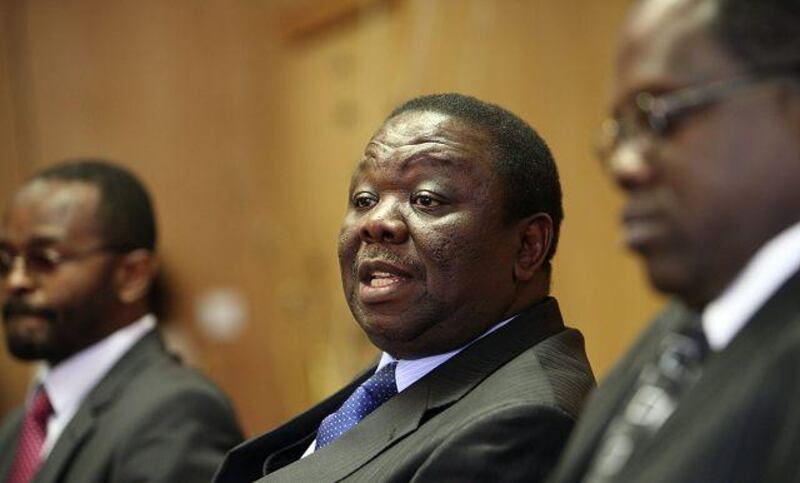BULAWAYO, ZIMBABWE // The unity government completes its first 100 days in office today, a hectic period characterised by a mixed performance, analysts and members of the public said. "I give the inclusive government a marginal pass. Fifty-five per cent would be too generous, so anything between 50 and 52 per cent is fair," said Eldred Masunungure, a political science professor at the University of Zimbabwe.
When the administration took office on Feb 13, most government schools, universities and hospitals were closed because of underfunding and a marathon strike by teachers, lecturers and medical staff. Political violence was widespread, as was pessimism among the people. The economy was showing signs of stabilising after its liberalisation a month earlier, but it was clear it needed a more sustainable impetus.
On March 2, most schools and universities reopened. The situation in hospitals also improved after the strike ended. Political tensions have thawed after high-level appeals for calm. The economic crisis has eased somewhat but fundamental improvements are still lacking. For nine years, Zimbabwe experienced political and economic crises, which analysts blame on the despotic tendencies and economic mismanagement of the president, Robert Mugabe. After failing to win elections outright last year, he was forced to negotiate a power-sharing agreement with his rivals, Morgan Tsvangirai and Arthur Mutambara, who are now prime minister and deputy prime minister. The trio signed the deal in September and formed a unity government on Feb 13, ushering in hope for the country.
Takesure Moyo, 25, a driver, said: "There is relief. We are not earning much, but at least the money can buy something and you can save. There are goods in shops now." Inflation has fallen to minus three per cent from its high of more than 230 million per cent after the government discarded the local currency and allowed foreign currencies to circulate. The international community is slowly showing its willingness to re-engage with the country, though it has largely maintained guarded optimism. Germany, Japan and the US have lifted travel warnings on Zimbabwe. The World Bank has offered US$22 million (Dh81m) to repair broken-down water and sewer infrastructure, while Germany has pledged ?10m (Dh51m) for the same purpose. The International Monetary Fund recently restored Zimbabwe's eligibility to receive technical assistance. African countries that helped broker the power-sharing deal have provided $1 billion in credit lines to shore up the industrial sector.
Eric Bloch, an industrialist, praised the government's moves to normalise relations with the West, saying this creates goodwill, which is important in attracting investment. More needs to be done, though, to restore infrastructure and industrial production, he said. "For the common man, the poverty datum line has dropped from $465 per month to $351. It is still high, but the drop is a step towards alleviating poverty," he said.
Another highlight of the past 100 days is the beginning of a parliament-led process of writing a constitution, but the exercise has been marred by a controversy over the involvement of politicians. Lovemore Madhuku, the chairman of the National Constitutional Assembly, which is campaigning for a new legal framework, accused the government of receding into the old defensive and intolerant mode. Overall, he said, not much has changed: the economy is still bad and property rights and rule of law continue to be violated. He did say political tensions have lessened.
He said the Southern African Development Community (SADC), of which Zimbabwe is a member, thinks "there is progress because Mugabe is no longer being harassed for his misrule, but we see otherwise". Since February, parties have differed over the allocation of ambassadorial posts, provincial governors and the status of the central bank governor and the attorney general. But a breakthrough came on Thursday on most outstanding issues except the central bank and the attorney general. "Progress has been made and continues to be made with respect to rebuilding Zimbabwe and having a positive impact on the lives of the people," Mr Tsvangirai said in a statement. "In particular, I am pleased to announce that the constitutional process is gathering momentum." But Mr Masunungure said the failure of the new administration to attract more financial support to boost the economy is worrisome, SADC estimates that Zimbabwe needs $8.3bn to rebuild its economy.
"Yes donor resistance is mellowing, but very slowly for us. This government will stand or fall on the basis of its capacity to deliver. Without donor support, it will not deliver." tmpofu@thenational.ae





